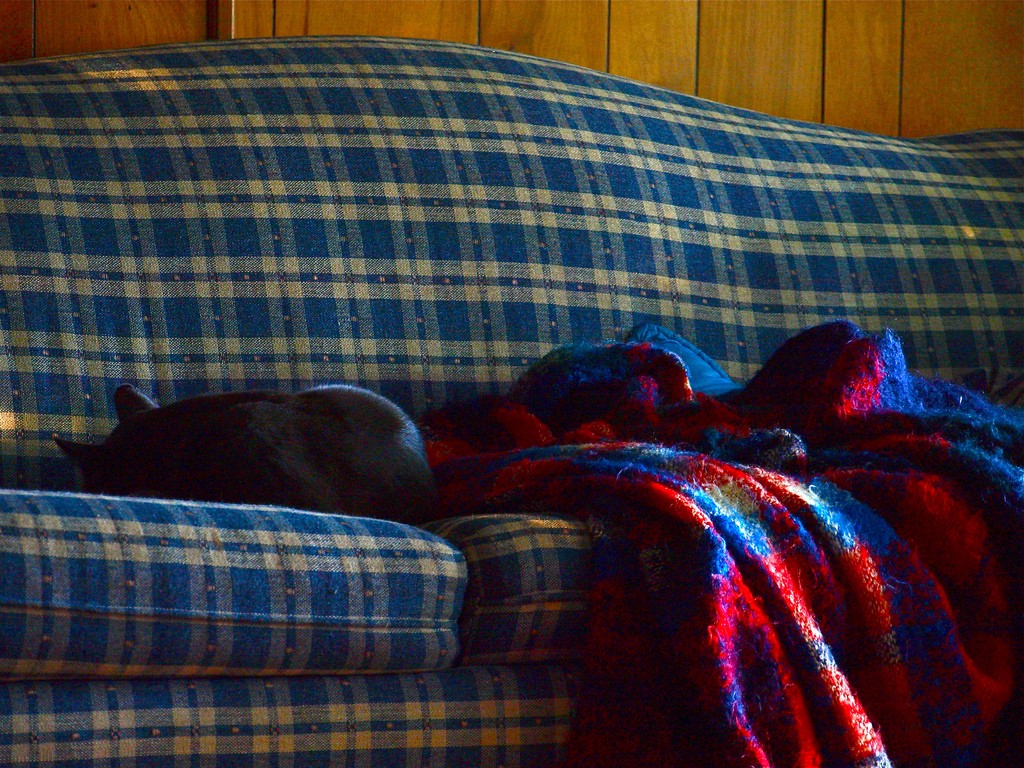What I Learned About Money After Growing Up With A Parent Who’s An Addict
by Anonymous

I was 12 when I realized my father had a drug problem. As long as I could remember, he spent most of his weekends sleeping on the couch. It was something more serious than just being stressed out from work: He was abusing prescription pills. A few years later, he graduated to heroin. In the process, he lost his job, my family lost our home, my parents’ marriage unraveled, and we ended up on food stamps.
As these things go, that kind of thing makes you learn other things about personal finance.
Years later, things seemed to have worked out as well as they could. My father went clean 15 or so years later following setbacks to his personal health. I’m in my thirties and have a well-enough-paying self-employed job in the media industry. I live in a grown-up apartment with my partner, go on vacations, have nice dinners at nice restaurants, have paid off most of my credit card debt, and even manage to save a few dollars on the side. It’s a long way from seeing my mom cry because she had to beg relatives for money.
But here’s the thing: My friends have no idea I know how to make food stamps/EBTs stretch out by buying in bulk. I repair things instead of throwing them out. I know how to make a dollar last like nobody’s business. That’s the good part. The not-so-good part is that I inherited the same addictive tendencies that my father had.
Hard drugs aren’t something I like, but I drink too much. I binge on food when work stress gets to me. I fight a compulsive urge to save money with desires to go on expensive (and really fucking awesome) vacations on short notice. Much of my credit card debt comes from paying for expensive nights at the bar when I was in my twenties.
When you grow up in a stable household and suddenly have the rug swept out from under you, it impacts how you look at money. My family was lower middle-class and on relatively decent financial footing. We owned our own house, but had only one used car and vacations were low-overhead affairs, like driving down to the Jersey Shore. I was in a situation where my father was the family’s only wage earner; in a craptastic and kind-of sort-of codependent twist, my mother developed health issues that prevented her from working at the very same time my father’s addiction progressed.
My big lesson was the realization that good things don’t last forever, and to trust yourself most of all when it comes to work. That great job you have might not stick around, and you need to make sure you’re in control of your own destiny. That’s a big part of what pushed me to start my own business — the idea that I needed to guarantee my income rather than relying on the benevolence of outside forces.
When I was 17 and applying to schools, I remember asking my mom about my college funds and the money I got from my bar mitzvah, only to find out it was spent on bills when my parents separated. That was fun!
Then there are the different priorities. When it comes to furniture, transportation, clothing — you name it — I take quality over brand or prestige any day. Give me a $4,000 sofa that will last me for 15 years. Give me shoes that will last for at least two years. Expensive kitchen knives that will never break. Cheap cars that are workhorses over expensive cars that look cool and always need repairs. If I’m putting down cash money, I want it to last.
At the same time, in my work life, I don’t know how to turn down projects and gigs. Some shitty part of my reptilian brain thinks that if I don’t accept the work now, there won’t be work to replace it later — a sort-of hoarding mentality gone into overdrive. That means I’m diverting my energies in too many different directions, not doing the quality of work I should be doing, and handing in projects late. It’s foolish, and something I actively work on. I worry every time I turn down a project that there won’t be another project to replace it. It’s completely irrational, but it’s something I do… and I’m pretty sure my early experiences have a lot to do with that.
I know I’m not the only one who grew up with this. I’d gladly sign this article under my own name, but know people I work with would judge me for it (Sad! But true!) and, more importantly, that it would hurt members of my family. My father is sober these days, and that makes me happy beyond words. I have friends who I talk to about this who grew up under similar circumstances, and we have similar issues/traits.
With that said, I haven’t seen a place on the internet where children of addicts really get to talk about how it impacted their personal finances. So I’m really curious to see what everyone has to say in the comments.
Anonymous works in media. He still misses the taste of welfare peanut butter, but likes being financially stable even more.
Photo: Alexandr Trubetskoy
Support The Billfold
The Billfold continues to exist thanks to support from our readers. Help us continue to do our work by making a monthly pledge on Patreon or a one-time-only contribution through PayPal.
Comments